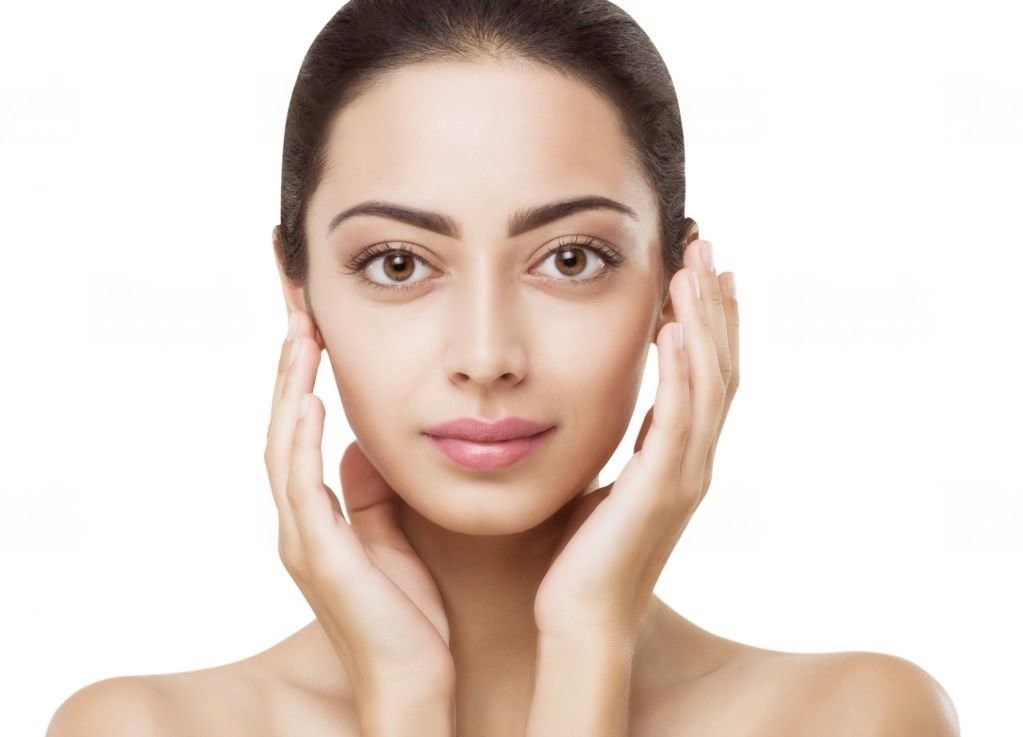A Guide to the Perfect Skincare Routine
An effective skincare regimen for individuals encompasses a well-balanced blend of cleansing, moisturizing, safeguarding against sun damage, specialized treatments, and a comprehensive incorporation of healthy lifestyle practices.

Maintaining healthy and radiant skin is a universal desire, and in a diverse country like India, where different climatic conditions prevail, a well-suited skincare routine becomes essential. The Indian subcontinent experiences a wide range of weather patterns, from scorching summers to monsoons and chilly winters. This blog aims to provide a comprehensive guide to the perfect skincare routine for Indians, backed by scientific research, logical reasoning, and expert advice.
Why Cleansing Matters ?
Cleansing is the foundation of any effective skincare routine. Our skin accumulates dirt, pollutants, and excess oil throughout the day, which can clog pores and lead to acne and dullness. Scientifically, a study published in the Journal of Investigative Dermatology explains how cleansing helps remove particulate matter that adheres to the skin, reducing the risk of inflammation and premature aging.
Suggestions:
- Choose a Mild Cleanser: A mild, pH-balanced cleanser is ideal for Indian skin, which is often exposed to pollution and harsh weather. Harsh cleansers can strip away natural oils, leading to dryness. Look for ingredients like glycerin and hyaluronic acid that maintain skin hydration.
- Double Cleansing: In areas with heavy pollution, double cleansing can be beneficial. The initial oil-based cleanse helps dissolve makeup and SPF, followed by a water-based cleanse to remove remaining impurities. This approach ensures thorough cleansing without over-drying the skin.
Why Hydration is Crucial ?
Hydrated skin not only looks plump and youthful but also functions optimally as a barrier against external aggressors. A study published in the British Journal of Dermatology emphasizes the importance of hydration in maintaining skin barrier integrity.
Suggestions:
- Water Intake: Staying hydrated internally reflects on your skin's external appearance. Drinking an adequate amount of water maintains skin elasticity and helps flush out toxins, contributing to a clearer complexion.
- Moisturization: Humidity levels vary across India, influencing skin hydration. Opt for a moisturizer containing ceramides, which help retain moisture in the skin. Additionally, look for niacinamide, a vitamin B3 derivative that aids in improving the skin barrier and reducing redness.
Why Sun Protection is a Must ?
India's tropical climate means prolonged sun exposure, making sun protection vital. Unprotected sun exposure can lead to premature aging, hyperpigmentation, and an increased risk of skin cancer. A study published in JAMA Dermatology highlights the role of sun protection in preventing skin aging.
Suggestions:
- Broad-Spectrum Sunscreen: Opt for a broad-spectrum sunscreen with an SPF of at least 30. This protects against both UVA and UVB rays, preventing sunburn and long-term skin damage.
- Reapplication: Reapply sunscreen every two hours, especially when outdoors. Sweating and wiping your face can reduce its efficacy.
Why Targeted Treatments Work ?
Individuals often have specific skin concerns, such as acne, hyperpigmentation, or aging. Targeted treatments address these concerns effectively. A study in the Journal of Cosmetic Dermatology explains how active ingredients in targeted treatments can influence skin health.
Suggestions:
- Salicylic Acid for Acne: Indian skin is prone to acne due to humidity and pollution. Salicylic acid exfoliates within the pores, preventing congestion. It also has anti-inflammatory properties that help calm active breakouts.
- Vitamin C for Hyperpigmentation: Sun exposure can lead to uneven skin tone. Vitamin C is a potent antioxidant that inhibits melanin production, reducing hyperpigmentation. It also boosts collagen production, enhancing skin elasticity.
Why Lifestyle Matters ?
While skincare products play a significant role, lifestyle factors contribute equally to skin health. A study in the Clinical, Cosmetic, and Investigational Dermatology journal emphasizes the impact of diet, stress, and sleep on skin condition.
Suggestions:
- Balanced Diet: Incorporate a diet rich in antioxidants, vitamins, and omega-3 fatty acids. Indian superfoods like turmeric, Indian gooseberry (amla), and nuts like almonds and flaxseeds into your diet for a rich source of antioxidants, vitamins, and omega-3 fatty acids that promote vibrant and healthy skin. These nutrients support skin repair, fight inflammation, and maintain elasticity.
- Stress Management: High stress levels trigger inflammatory responses in the body, which can manifest as skin issues. Practice stress management techniques like yoga, meditation, or deep breathing to promote healthy skin.
- Adequate Sleep: During sleep, the body repairs and regenerates skin cells. Lack of sleep can lead to dullness and early signs of aging. Aim for 7-9 hours of quality sleep each night.
SUMMARY
A perfect skincare routine for individuals involves a strategic combination of cleansing, hydration, sun protection, targeted treatments, and a holistic approach to lifestyle. The diversity of Indian climates requires adapting skincare routines based on the prevailing weather conditions. Scientific research underscores the importance of these practices in maintaining healthy, glowing skin. Remember, consistency is key, and consult a dermatologist to tailor the routine to your unique skin type and concerns.
Jayti Shah is a Clinical Nutritionist with a master's degree in Clinical Nutrition and Dietetics. She is a member of the Indian Dietetic Association (IDA). Over the last 9 years, she has helped 400 clients in their clinical and weight loss journeys. She works with SocialBoat as a nutrition consultant.
At SocialBoat, we offer custom diet plans and guided workouts to help you achieve your goals in a 360-degree approach. Our gamified experience ensures that you don’t find workouts boring and we reward you for being consistent with your efforts.

REFERENCES
- Crichton, M. L., Walsh, T. R., Towner, E. M., & Dodds, K. L. (2019). Skin Microbiome: A New Actor in Inflammatory Acne. The American Journal of Clinical Dermatology, 20(7), 1015-1023.
- Hacini-Rachinel, F., Gheit, H., Le Luduec, J. B., Dif, F., Nancey, S., Kaiserlian, D., & Dubuquoy, L. (2013). Oral probiotic control skin inflammation by acting on both effector and regulatory T cells. PLoS ONE, 8(4), e49046.
- Sonthalia, S., Daulatabad, D., Sarkar, R., & Ghate, S. (2016). Poly-L-lactic acid: A review. Journal of Cutaneous and Aesthetic Surgery, 9(4), 185–188.
- Farris, P. K. (2005). Cosmetical Vitamins: Vitamin C. Clinics in Dermatology, 23(2), 367-370.
- Telang, P. (2013). Vitamin C in dermatology. Indian Dermatology Online Journal, 4(2), 143–146.
- Mukherjee, S., Date, A., Patravale, V., Korting, H. C., Roeder, A., & Weindl, G. (2006). Retinoids in the treatment of skin aging: an overview of clinical efficacy and safety. Clinical Interventions in Aging, 1(4), 327–348.
